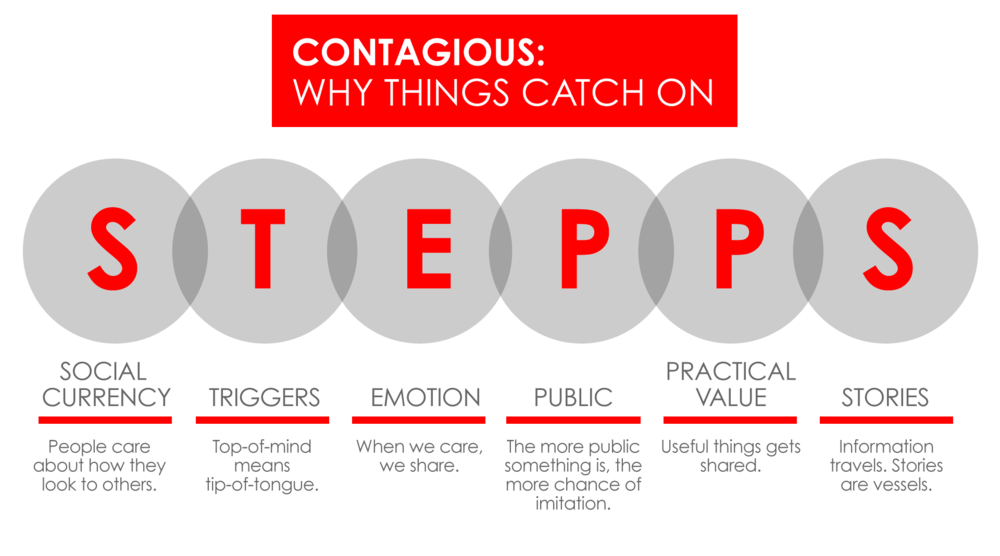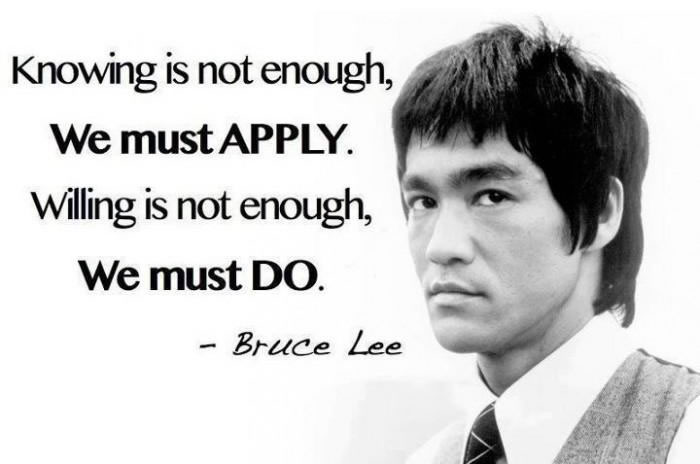The greatest challenge in content marketing lies in creating compelling content.
Now just any old article, Tweet, or Facebook update, mind you, but stuff that your readers would want to read, share, and click on.
As Ann Handley, Chief Content Officer of MarketingProfs has shared:
“You need to create ridiculously good content – content that is useful, enjoyable and inspired.” ~ Ann Handley, Chief Content Officer, MarketingProfs
But how can you do so, given the immense competition out on the web?
After consuming tonnes of books and blogs, I’ve distilled the best strategies and tactics used by leading content strategists around the world. Apply these methods and watch your content marketing efforts skyrocket to greater heights.
#1 Learn from the Best
To be a content marketing rockstar, you need to learn from the masters. The best way to do so is to read what they write, listen to their podcasts, watch their videos, and attend their conferences/workshops.
Here are some of the top names in content and social media marketing whom I personally follow:
- Seth Godin, the uber marketing guru and author of numerous books (including this, this, and this)
- Neil Patel of Crazy Egg
- Ryan Deiss of DigitalMarketer
- Michael Stelzner of Social Media Examiner (read about his book Launch here)
- Joe Pulizzi of Content Marketing Institute (read about his 10 principles of content marketing here)
- Gary Vaynerchuk of VaynerMedia (author of Jab, Jab, Jab, Right Hook, The Thank You Economy and many other books)
- Ann Handley of MarketingProfs (author of the amazing Content Rules)
- Chris Brogan, author of The Freaks Shall Inherit the Earth

Gary Vaynerchuk (aka Gary V)
#2 Pick Up SEO Skills
I’m not a Search Engine Optimization (SEO) expert by any stretch of the imagination. However, I do make it a point to read about the developments in this space and apply them for my clients.
To succeed in getting your blog or website ranked for specific keywords, you’ll need to know the following:
- The algorithms of search engines and how they work;
- What your customers are searching for;
- The actual search terms or keywords that they use when doing so; and
- How well your content (text, image, video, etc) ranks for those keywords.
Here’s a comprehensive 12-step guide to creating content for SEO which I’ve written. Try to apply some of its principles and watch the magic happen.
#3 Make it Shareable
Writing for Search Engines like Google alone isn’t enough. You need to also make your content shareable.
To help us along, Professor Jonah Berger of Wharton developed a simple acronym STEPPS to describe how you can create “contagious” content:
- Social Currency: Content which makes your readers look good when they share them
- Triggers: Easy to remember top-of-mind content (eg Thank God Its Friday, festive seasons)
- Emotions: Content which arouses emotions like awe, amusement, anger, and anxiety
- Public: Content linked to actions which are publicly visible
- Practical Value: Valuable content which educate and enlighten
- Stories: Everybody loves a story, even B2B ones
Courtesy of Digital Rezonance
#4 Enhance with Visuals
Do you know that 93% of all human communication is non-verbal? Or that visuals are processed 60,000 times faster in the brain than text?
A wall of text is deadly in the digital world. Especially on mobile phones – the preferred method of consuming content.
Here are some ways to introduce visuals in your content (you can find more of them here):
- Include an interesting photo
- Illustrate statistics or processes with infographics
- Use a funny cartoon to trigger laughter
- Create a collage of your customers
- Embed videos or GIFs to make your content dance
Courtesy of Demand Gen Report
#5 Be a Content Curator
Coming up with a continual stream of inspired content can be challenging. Especially on your “off” days where you feel worn out and weather-beaten.
This where content curation comes in.
Regular readers of Cooler Insights will notice that much of the stuff which I blog about are curated. They may come from a podcast I’ve listened to, video I’ve watched, blog post I’ve perused, or book I’ve read.
Following Pareto’s famous 80/20 rule, you can curate up to 8o percent of your online content and leave the remaining 20 percent for your original pieces. Instead of just sharing what you’ve read, viewed or heard, consider adopting the following tactics:
- Repurpose the content from its original form. For example, you could write a blog post based on a book which you’ve read or podcast which you’ve listened to.
- Provide your own spin on the ideas that you’ve heard.
- Critique the original piece and offer a contrarian perspective.
- Compile the best insights you’ve heard, viewed or read from different experts.
#6 Write Every Day
American classical musician Jascha Heifetz shared about the importance of practice here:
“If I don’t practice one day, I know it; two days, the critics know it; three days, the public knows it.” – Jascha Heifetz
Like playing in a symphony, content creation improves with practice. The more you read and write, the better you become.
If writing every day is a problem for you, try doing it weekly. Put it in your calendar and make a “writing date” with yourself – come hell or high water.
The important thing here is to make it a habit – one that you can comfortable stick to day after day, week after week, month after month.
(Read this to learn more tactics on establishing a content rhythm on social media.)
Courtesy of Aidan Meyer
#7 Write Like You Talk
Imagine that you’re talking to your reader face-to-face, and write like how you talk – only better.
Writing conversationally means making your sentences and paragraphs sound like you. To do so, avoid sounding patronizing, avuncular or pedantic.
And steer far away from jargons or any form of technical mumbo jumbo.
Instead, write as though you and the reader are out on a field trip exploring the world together. As she uncovers something strange and unfamiliar, you help to explain what is going on and how its done.
#8 Mix and Match Rhetorical Modes
Providing an effective pattern to organise your thoughts, rhetorical modes allow you to better structure your writing. See if you can mix and match between these four modes in your writing:
a) Narration
When you narrate a story, you walk your reader through a series of events and activities.
Organised chronologically, it involves asks the following 5 W and 1 H (5 Wives and 1 Husband) questions:
- Who is involved?
- What happened?
- Where did it happen?
- When did it happen?
- How did it happen?
- Why did it happen?
b) Description
Descriptive writing works best when you wish to delve into the rich and vivid details. Descriptive writing is highly sensorial and draws your readers in with impressions from all your senses – sight, sound, taste, smell and texture.
c) Explanation
My personal favourite, explanatory (or expository) content helps to inform and instruct readers by providing definitions, examples, comparisons and case studies.
d) Argument
Favoured by bloggers and journalists who write about political and social issues, an argument is a form of writing whereby you try to present the pros and cons to an issue, take a position (sometimes controversial), and provide valid reasons to support your claim.
#9 Develop Your Own Voice
Lastly, consider developing your own unique style and swagger when you write.
A great example here is the legendary kung-fu movie star Bruce Lee. Even though he died over 43 years ago, his characteristic style still survives to this day.
A prolific reader and writer – he carried a notebook around wherever he went – Bruce Lee was known for his evergreen aphorisms on life, success and motivation.
Here are some of his most famous quotes for good measure:
“You must be shapeless, formless, like water. When you pour water in a cup, it becomes the cup. When you pour water in a bottle, it becomes the bottle. When you pour water in a teapot, it becomes the teapot. Water can drip and it can crash. Become like water my friend.” – Bruce Lee






Supossed if we write what we like seems make an article would rockin our site, right which this post share. Its great I read this article.